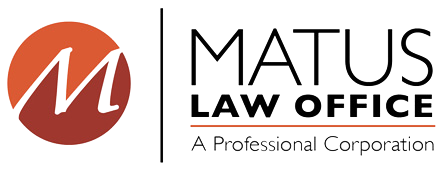OMG!! – Courts, Agencies and Legislatures are Limiting Employer Use of Social Media Policies
While users of Facebook and other social media sites often assume that their employers never view their social media profiles and posts, this is increasingly not the case. Many employers have adopted social media policies and routinely screen the online presence of employees and applicants for objectionable content before making decisions on hiring, promotion or discipline. Nonetheless, employers do not have limitless authority to review their employees’ social media entries and base employment decisions on what is discovered. Instead, an emerging body of law is beginning to impose several constraints upon employer actions.
It is hardly shocking that discrimination laws apply in cyberspace. Of course, employers who choose not to hire an applicant because his LinkedIn profile indicates that he is a member of the NAACP, or employers who terminate an employee after seeing Facebook postings of her at a religious ceremony, act no differently than employers who take the same actions after discovering those facts from another source. An employer in either case runs a significant risk of a lawsuit.
Likewise, it should not come as a surprise that an employer’s ability to monitor its employees’ social media presence is limited to what is publically viewable. Facebook and other social media sites provide several ways that users can restrict all or some of the entries in their accounts to selected viewers. Illinois and several other states have passed laws prohibiting employers from compelling employees or applicants to disclose passwords or other information about social media accounts or from demanding access to social media profiles. Additionally, an employer who demands access to private content on its employees’ social media accounts may run afoul of a federal statute, the Stored Communications Act. For employees who are concerned about all or some of what is posted on their social media profiles, the safest course is to restrict the access to that content.
What may not be obvious is that there are also limitations on employers with respect to publically accessible social media content, even when that content is objectionable for a nondiscriminatory reason. These restrictions were illustrated in a recent decision by the federal Court of Appeals for the Second Circuit, which covers New York, Connecticut and Vermont. In the case, a sports bar failed to properly calculate withholdings for its employees, causing several employees to incur tax liabilities. Subsequently, a former employee posted a public Facebook status update which included the statement: “They can’t even do the tax paperwork correctly!!! Now I OWE money . . . WTF!!!!” A current employee made a comment on the posting that “I owe too. Such an asshole.” Another employee indicated that he “liked” the update. Several customers of the sports bar also viewed the status update and made separate comments. Upon learning of these Facebook postings, the employer discharged the employees.
An employer might think that it would be safe to terminate the employment of employees who use profanity in the presence of customers, but that was not the case in this situation. After a hearing, the sports bar was found liable by the National Labor Relations Board, and the Second Circuit upheld the decision. Contrary to what many employers think, the NLRB’s ambit is not limited to unionized companies. Instead, the National Labor Relations Act (the “NLRA”), the law administered by the NLRB, also protects employees who “engage in other concerted activities for the purpose of . . . mutual aid or protection.” The NLRB ruled that sports bar’s employees engaged in concerted activity relating to workplace issues through their Facebook postings. Therefore, by terminating the employees, the sports bar violated the NLRA.
The fact that the employees used profanity seen by customers did not preclude the sports bar from being found liability. The Second Circuit stated that the postings were not directed towards customers, did not reflect the sport bar’s brand and were not defamatory within the meaning of the law. The court also noted that virtually all public Facebook postings have the possibility of being viewed by customers and that a ruling in favor of the sports bar could chill virtually all online speech by employees.
For employers, the lesson to be drawn is that the context of employee social media posts always matters. An employer will usually be safe in disciplining or terminating employees who make online threats of violence or harass other employees or customers or who post unacceptable statements on a site maintained by the employer itself. Employers must be much more cautious when an online statement is a gripe about work conditions, even when the employee uses obscenity or disparaging statements about the employer or supervisors. As the sports bar found, taking action in those circumstances could prove costly.


